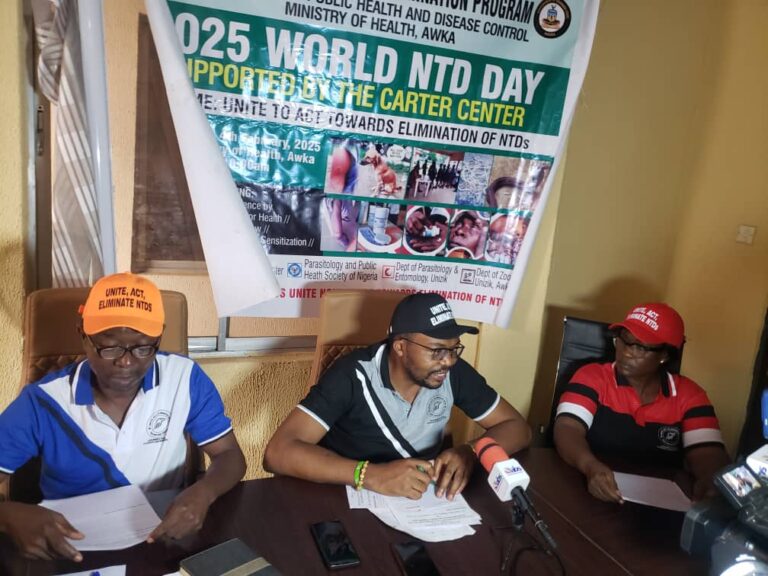- Agency Report
The Anambra State Government, in partnership with Carter Centre, said it recorded and treated 156 dog bite cases between 2023 and 2024.
The Commissioner for Health, Dr Afam Obidike, made this known at a news conference on Neglected Tropical Diseases (NTDs) Interventions, to mark the 2025 World NTDs Day, in Awka on Tuesday.
The theme for this year’s commemoration is “Unite to Act Towards Elimination of NTDs”.
The News Agency of Nigeria (NAN) reports that World NTDs Day is marked every Jan. 30 to create awareness and support the growing momentum for the control, elimination and eradication of these diseases.
Obidike said the state government established three centres for the treatment of dog bite victims against rabies viral infection at Onitsha Federal Medical Centre, Ekwulobia and Enugu-Ukwu General Hospitals.
“Out of the 156 dog bite cases, 118 victims showed open wounds and bleeding, and more than half received free prophylactic treatment with anti-rabies vaccines.
“Results indicated that 87 males and 69 females were exposed, representing 56 per cent and 44 per cent respectively.
“The incessant movement of unvaccinated homeless, stray dogs in our streets remains a big challenge of public health.
“We are collaborating with the Ministries of Environment and Agriculture, to control rabies viral infection in the state,” he said.
The commissioner identified onchocerciasis, known as river blindness, lymphatic filariasis, also known as elephantiasis, schistosomiasis, and soil-transmitted helminthiasis (STH) as the NTDs in the state.
According to him, NTDs are caused by a variety of pathogens including viruses, bacteria, parasites, fungi and toxins.
He said that the state had successfully eliminated two NTDs – river blindness and elephantiasis, through mass drug administration and vector control programmes.
Obidike urged Carter Centre and academic institutions to strengthen collaboration with the government, to sustain the successes achieved in the prevention of NTDs.
He urged residents to report cases of elephantiasis, hydrocele, dog bites, snake bites, oncho nodules, yaws, buruli ulcer, leprosy, guinea worm, and bloody urine, to the nearest health centre for prompt treatment.
Also speaking, Mrs Egeonu Attamah-Isiani, Programme Officer, Carter Centre, said the centre would continue to support the state to eliminate NTDs and achieve the global target by 2030.
In her remarks, Prof. Nkiru Orji, Coordinator, Parasitology and Public Health Society of Nigeria (PPSN), South-East, urged the state government to make policies and increase funding for NTDs research, to provide data for elimination. NAN


